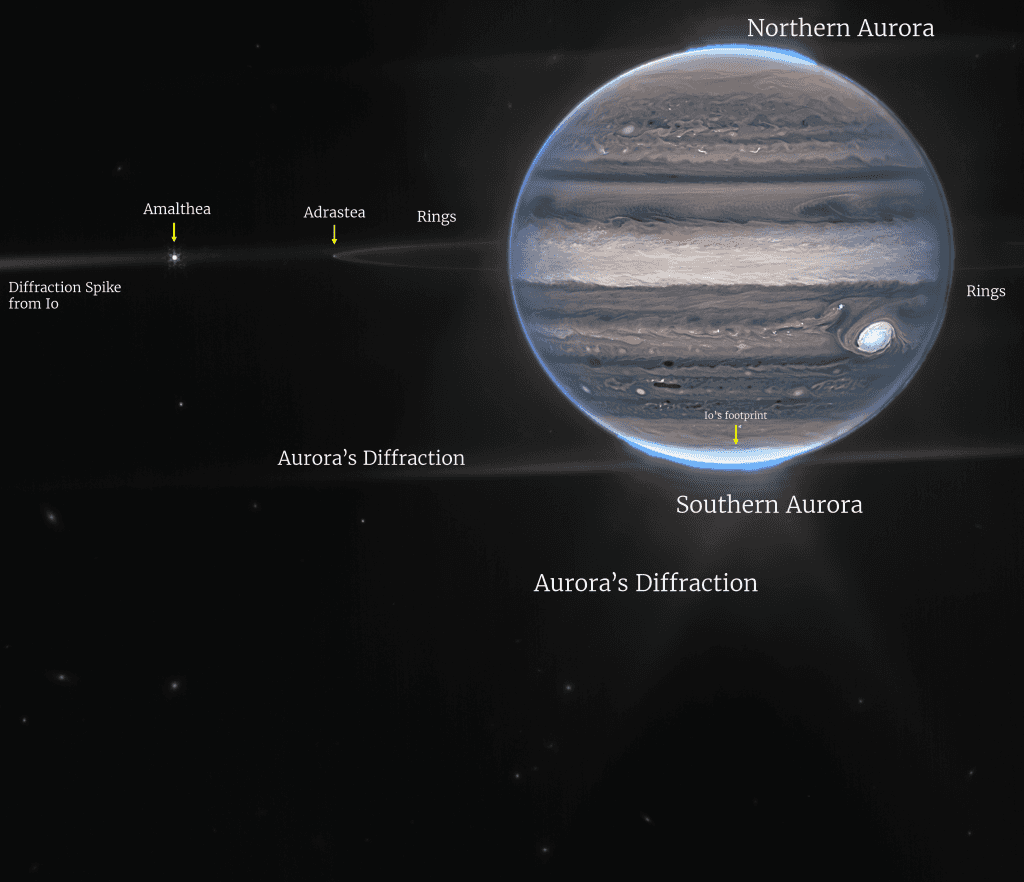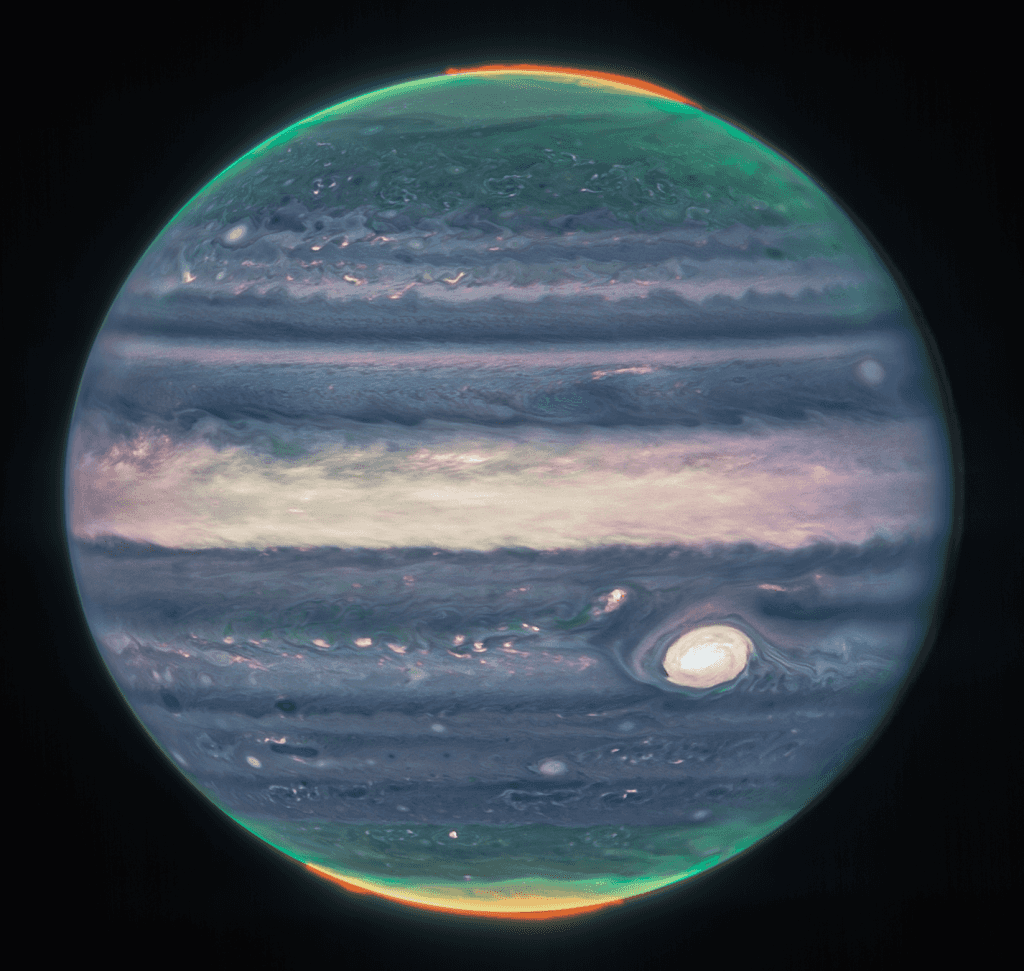The James Webb Space Telescope has captured stunning images of Jupiter and its rings, moons and more.
The infrared images were captured July 27 and then artificially colored to show the features of the planet, according to NASA. The photos give scientists even more clues to Jupiter’s inner life.

“We hadn’t really expected it to be this good, to be honest,” said planetary astronomer Imke de Pater, professor emerita of the University of California, Berkeley. “It’s really remarkable that we can see details on Jupiter together with its rings, tiny satellites, and even galaxies in one image.”
The standalone view of Jupiter was created from a composite of several images from Webb with auroras extending to high altitudes above both the northern and southern poles of the planet. The auroras shine in a filter that is mapped to redder colors, which also highlights light reflected from lower clouds and upper hazes.

A different filter, mapped to yellows and greens, shows hazes swirling around the northern and southern poles. A third filter, mapped to blues, showcases light that is reflected from a deeper main cloud.
The Great Red Spot, a famous storm so big it could swallow Earth, appears white in these views, as do other clouds, because they are reflecting a lot of sunlight. Other storm systems appear on the images as ovals.
Two of Jupiter’s moons – Amalthea and Adrastea – are also captured in a wide-field view of Jupiter.
___
© 2022 Advance Local Media LLC
Distributed by Tribune Content Agency, LLC.



